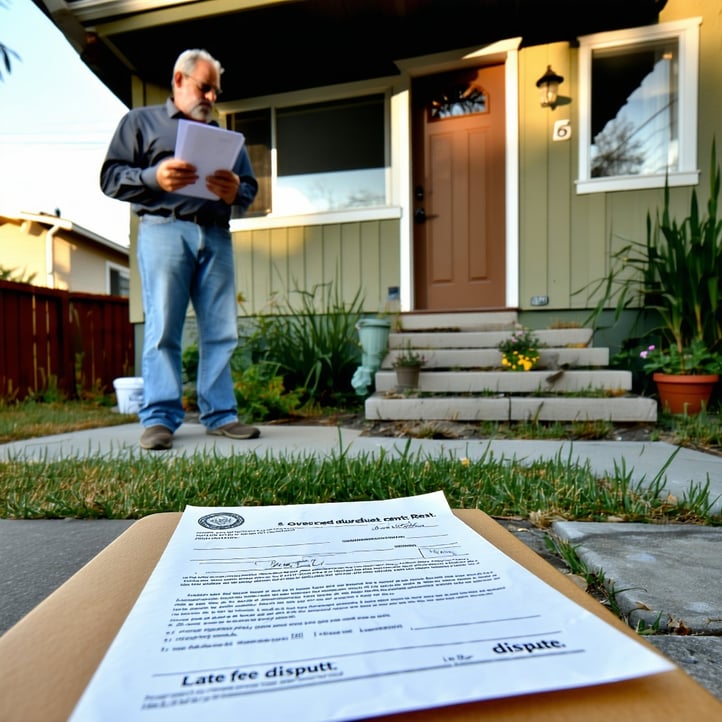Your properties are continually moving through a lifecycle where you must attract and bring in new tenants, enforce the lease, collect the rent, and perform maintenance on a property that's currently occupied — the longer that you stay in the second half of the cycle, the higher your return on investment.
The longer you spend in the first, the higher your unrecouped costs. By paying attention to tenant satisfaction, you can go a long way toward avoiding tenant turnover. You want your units full of happy renters who aren't inclined to set out for greener pastures. Here are some tips for how to shorten your vacancy cycle, or even eliminate it.
Ensure Your Rents Appropriate
It starts with money. A property that is priced too high for the market won’t get the attention that you hope to see. It’s important to make sure that your rental rates fit well with your area and the pool of renters that you wish to attract. Settling on the right rental price can be a little more art than science, and unfortunately, it’s not something that you only have to worry about once.
Like any other market, an appropriate rental rate will change over time. Inflation or changes in your expenses will also influence the prices you need to charge to make a profit, so be ready to face the prospect of raising your rents over time.
How To Mitigate the Damage
Without a doubt, your tenants won’t understand the need for a rent increase that way that you do. It will be something that you’ll have to approach carefully, especially with renters who have been paying the same rate for a while. It’s best to build cost adjustments into your plan and raise your rates slowly over time instead of putting it off. Renters can absorb smaller increases each year with a bit of grumbling but may scoff at a substantial hike after years of writing the same check.
If possible, use vacancy cycles to your advantage by adjusting rents upward as necessary before marketing and filling a unit or rental property. Get in the habit of effective communication with your tenants as soon as possible and make sure to follow up in writing and keep good records.
Screen Your Tenants Effectively
A solid screening process will be a big help. When you can screen for tenants that have a history of being poor renters or a long record of financial trouble you can be sure that you aren’t setting yourself up for an empty property due to eviction or an unhappy or “professional” tenant. This process always involves some cost in money, time, and labor up front, but it potentially saves a considerable amount of all three down the road.
You won’t need to pursue evictions or absorb the cost of missed rent or handle maintenance on damaged properties. Above all, tenants who mesh well with you and your property will stay longer and be more invested in where they are living.
Keep Things in Good Repair

You can go a long way to keeping tenants satisfied by being proactive about the well-being of your property. Don’t skimp on the necessary maintenance, and always respond as quickly as possible to repair or maintenance requests. Doing this can be just as important as the more routine communications that you have with tenants.
The bottom line: Tenants who feel that you are responsive or know where to go if there is a problem are far more likely to keep renewing their lease.
Be the Best Landlord You Can
Your reputation is an integral part of your business, even in a large city, it can still be a “small world,” and you should approach your tenant relationships as something to invest in just like your property. They are your business partners, after all. Do more than only come calling when there are problems or maintenance trouble, and be sure that your renters get more face time with you than the first-day handover of a set of keys.
While it’s often counterproductive to be friends with your tenants, you don’t have to be aloof or distant. Be interested in their well being and how they view the property. A young family may have a different set of needs and a different outlook than a retired couple, but you can help both families see themselves in your rental property long term by checking in on them and making sure that the property is meeting their needs wherever possible.
Hire a Property Management Company
A property management company can handle a lot of the work that goes into keeping your vacancy cycle a short-term concern. A property manager will list your properties and screen potential tenants - keeping the right people renting from you. They will handle maintenance requests quickly and be there in an emergency. If you’re worried about extra cost on an empty unit, remember that a property manager usually doesn’t get paid if they don't fill your rental property (management fees are generally a percentage of monthly rent), so they’ll work hard to make that happen quickly.
You can download our free guide to selecting the best San Diego area property management company. Just enter your name and an email address, and you can put the skills of a competent property management company to work for you.






